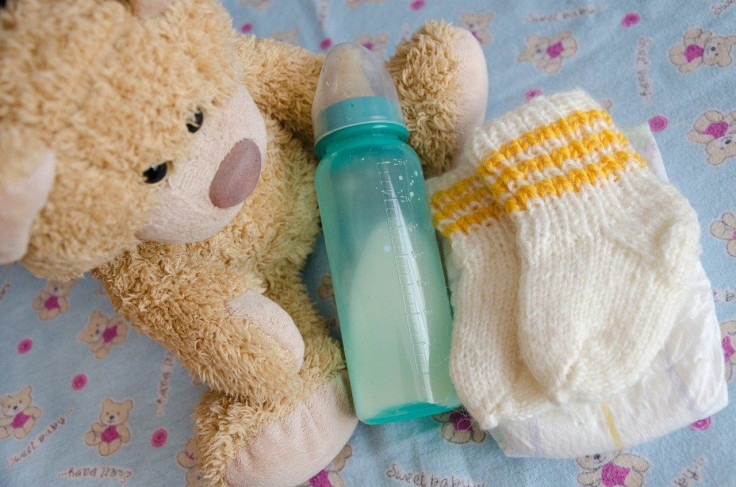2-Month-Old Florida Infant Tests Positive For Monkeypox
KEY POINTS
- The infant presented with rashes at the emergency department
- It's possible the baby contracted monkeypox from one of their four caregivers
- There have so far been 27 pediatric cases of monkeypox in the U.S.
A 2-month-old infant has tested positive for Monkeypox in Florida, marking the youngest case of the illness in the state.
The U.S. Centers for Disease Control and Prevention (CDC) detailed the case of the infant in a report Monday. The baby first presented at the emergency department with rashes that had been around for five days, according to the agency. However, rash swabs for bacteria yielded negative, and so did testing for conditions such as herpes simplex, HIV and varicella, otherwise known as chickenpox.
The infant was taken back to the hospital with the rashes having already progressed to pox-like lesions two days later. The infant was diagnosed with molluscum contagiosum at the time. The Mayo clinic described the condition as a "fairly common skin infection" that also causes bumps. It is reportedly caused by a virus and may be transmitted via person-to-person contact.
However, the rashes further progressed and spread during the time that the child was admitted to the hospital. By the tenth day after the rashes appeared, the lesion swabs taken from the infant's forehead and back confirmed that this was, indeed, a case of monkeypox.
The infant eventually made a full recovery. The case marks the youngest confirmed monkeypox patient in Florida so far, according to the agency. As of the report, there have been 27 pediatric (0 to 15 years old) monkeypox cases in the U.S. in this current outbreak.
So how did the infant contract the disease when they had no travel or infection history, and neither was the child placed in a care facility prior to the onset of the rashes?
The baby had four caregivers — identified only as caregivers A, B, C and D — prior to falling ill, according to the CDC. All of them had close contact with the baby, but caregivers B and C shared a bed with the infant in the six weeks prior to the symptom onset. Caregiver B reported engaging in activities that "placed him at high risk for monkeypox exposure," the agency noted. He also reported symptoms such as fever and a rash in the weeks before the infant developed symptoms.
"One day before the infant became symptomatic, caregiver B moved to another state and sought medical care for his symptoms," the CDC noted. "He received a positive Orthopoxvirus DNA test result 2 days after the infant's positive test result."
It's likely that the transmission was via close contact from caring for the infant as well as through the shared sheets, the agency said.
As for the three other caregivers, all of them received the post-exposure prophylaxis and have not developed symptoms 22 days on after the infant's symptom onset.
The case shows the importance of considering monkeypox in pediatric patients, as well as the "timely" investigation in the public health response to monkeypox, according to the agency.
"In this case, contact tracing and postexposure prophylaxis vaccination of close contacts of the affected infant might have prevented further transmission to household members," the CDC said.

© Copyright IBTimes 2024. All rights reserved.






















